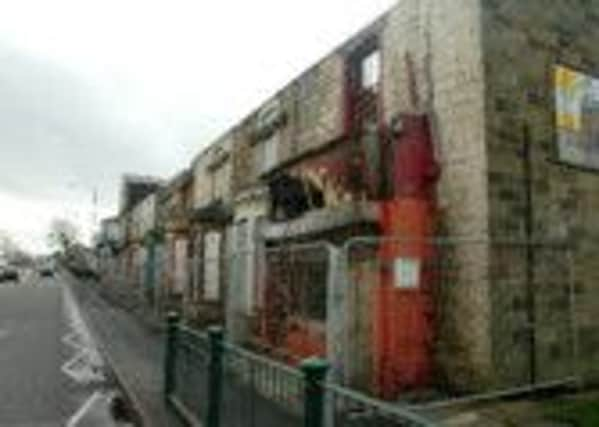Council has demolished the wrong homes


The answer is Burnley Council’s decision not to use compulsory purchase orders but instead to acquire property for redevelopment in a way which is questionably lawful. Ten years ago this block was fully occupied with a number of businesses. The fact it fell into dereliction was not something which just happened, but a deliberate council choice in carrying out policy of the then Labour Government who came up with the idea there were too many small terraced properties in the North of England and therefore a lot of public money should be used to get rid of them.
Under the Elevate programme, funded by central government, councils were expected to acquire large numbers of properties for demolition; if they couldn’t buy enough in any one year they risked not getting funding in the next.
Advertisement
Hide AdAdvertisement
Hide AdNever mind the quality of the properties purchased for demolition or how long it took to get rid of them, all that mattered was the number bought for destruction. Had compulsory purchase powers been used there was a risk owners might oppose their property’s compulsory purchase and – horror of horrors – succeed. Someone, therefore, came up with the idea of the council resolving to buy properties voluntarily. What this meant was that if the council resolved to buy your home or shop voluntarily you found yourself in the Orwellian position of your property being subject to compulsory voluntary sale.
Around the corner from these properties in Accrington Road was Cowper Street, where I once lived. Cowper Street was a real community. Someone, not from the street, once remarked to me it was very hard to get to live there as houses seldom came up for sale or rent. The residents, when offered the chance to have their homes included in the demolition plans, voted against. Despite this, in January 2007, everyone received a letter saying the council would like their homes for the regeneration, with the sting in the tail that if you indicated your acceptance in principle of the offer by the end of March you would receive a grant of up to £30,000 to move out, whereas after that date you might only get a loan – which wasn’t even true as grants were phased out 12 months after this in 2008. In this way we were bribed and bullied to get out. As far as I know, no council officer ever inspected any property in Cowper Street to consider whether they were in such a condition as to justify destruction.
In the case of the property where I lived, the Housing Association which once owned it must have spent, at today’s prices, around £30,000 in repairs and improvements not long before the council determined to buy it. Although I could have bought it I was refused a mortgage because, by the time I applied, the fact most of my former neighbours had taken up the council’s offer meant no one would lend even on a sound property. Had a CPO been brought I would have opposed it as would some of my neighbours; in that way my freedom was taken from me, which is why what was done may have been unlawful.
Today, now the money has run out, the Labour-controlled council is spending money repairing houses which have been genuinely abandoned and fallen into dereliction where no community exists. Although the repaired houses are repaired to a good standard, the long-term success of these efforts is not assured as nobody has asked why they became abandoned in the first place.
Advertisement
Hide AdAdvertisement
Hide AdIt is true – there are too many small 19th and early 20th Century terraces. Trouble is Burnley Council in all too many instances has knocked down the wrong ones – those in better condition and those where a genuine community remained to be broken up.
The renovated houses the council is trying to sell once done up ought to be the preserve of the first-time buyer. Unfortunately, many first-time buyers also have small children. In a great many cases, parents of young families are voting with their feet by moving to areas within the catchment area of their preferred school, even if that means paying double the rent for a smaller home, as I can vouch for from my own knowledge.
Mr Rawson, in the letters column, refers to Labour’s “failed Building Schools for the future project” and its propensity to spend ever more of other people’s money – to which I’d only add and never admitting it got anything wrong.
John Rowe
Tennis Street, Burnley